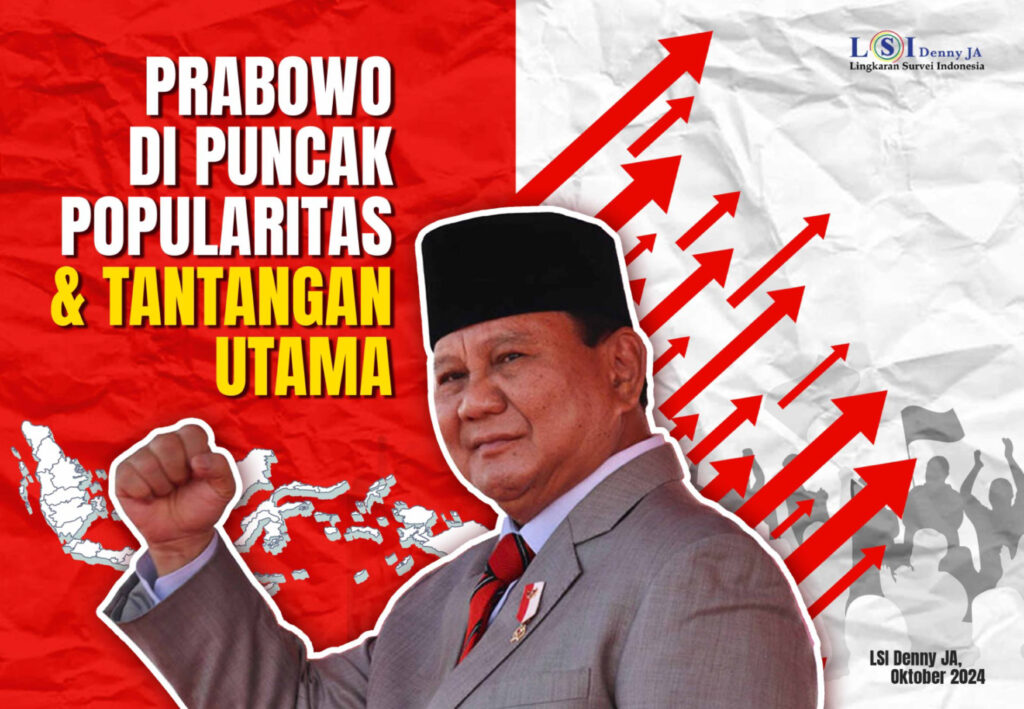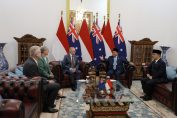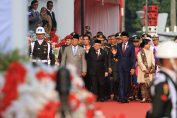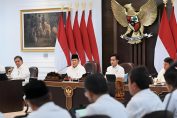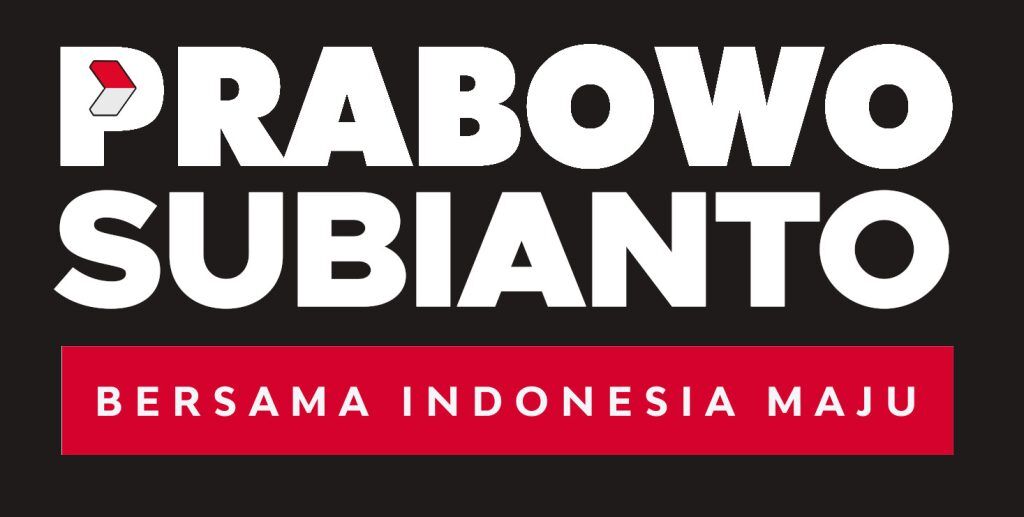Jakarta – Political analyst Ujang Komaruddin has commented on the latest survey by LSI Denny JA, which reveals that public trust in Indonesia’s 8th President, Prabowo Subianto, has reached a remarkable 83.5%.
As of January 2024, Prabowo’s popularity has peaked at 83.5%, highlighting his continued rise in public favor.
Discussing the survey results, Ujang emphasized that the public trusts Prabowo’s ability to lead Indonesia toward economic growth and improved welfare for its citizens.
In the economic segment, the LSI Denny JA survey shows that trust in Prabowo is high not only among the upper economic class but also among the middle class, where trust levels exceed 90%.
“This means that the people are with Mr. Prabowo. It means that the public believes Mr. Prabowo can steer the nation and its people toward a better future. This extraordinary trust signifies the people’s hope that Prabowo will uphold his commitment to the nation and the public good,” Ujang stated on Wednesday (October 23).
The LSI Denny JA survey also highlighted the public’s enthusiasm for Prabowo’s Free Nutritious Meals program, which has reached a peak popularity of 74.9%.
Ujang considers this a very positive sign, noting that the public warmly welcomes this initiative to ensure proper nutrition for schoolchildren.
“The free nutritious lunch program is truly special—an extraordinary program that the people really love. From what I’ve seen in the field, the public is extremely enthusiastic about President Prabowo’s free nutritious meals program. This is the kind of leadership that the Indonesian people have been longing for,” Ujang said.
He further noted that the Free Nutritious Meals program resonates deeply with the public, especially with the middle and lower economic classes.
“This is a pro-people policy, directly addressing the fundamental needs of the lower class, particularly in terms of food and economic welfare. From my observations, the enthusiasm surrounding this program is truly remarkable,” Ujang concluded.
The LSI Denny JA survey was conducted from September 26 to October 3, 2024, across all provinces in Indonesia through face-to-face interviews using a questionnaire with 1,200 respondents. The margin of error for this survey is +/- 2.9%. In addition to the quantitative research, LSI Denny JA also employed qualitative methods such as in-depth interviews, focus group discussions (FGD), and media analysis to strengthen the findings. (RR)

